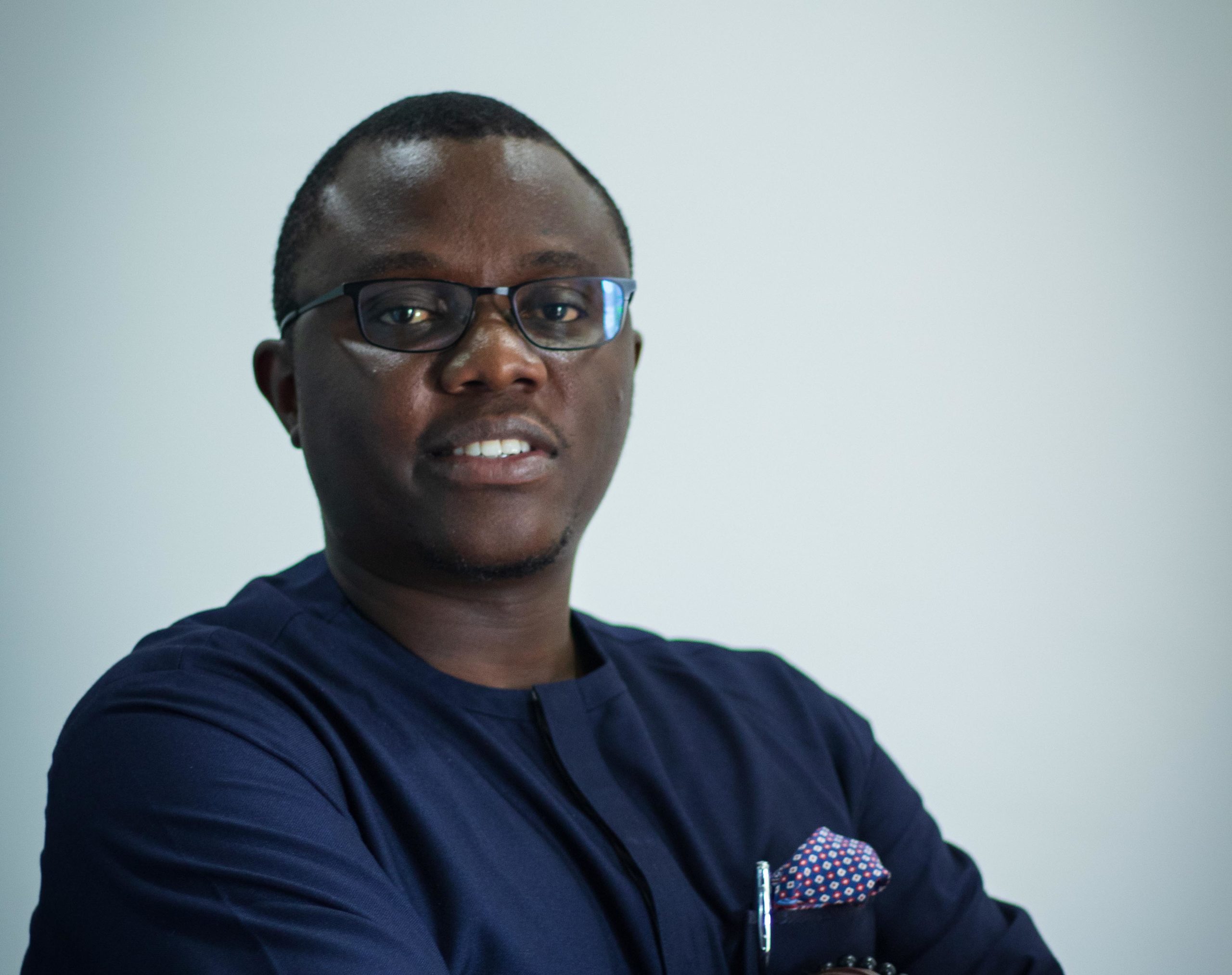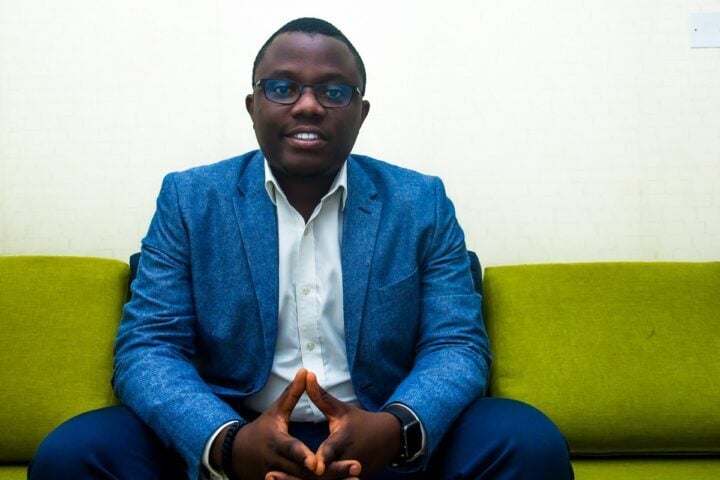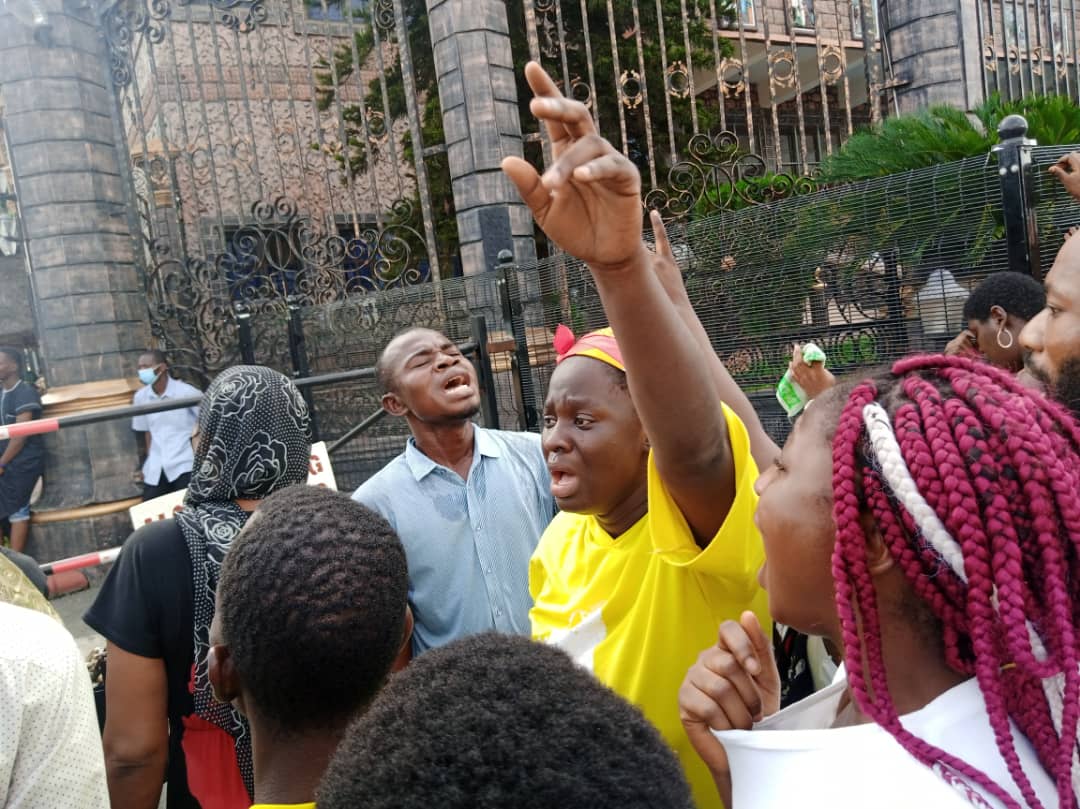Onyeka Akumah is the co-founder of Farmcrowdy, a digital agriculture platform focused on helping stakeholders in the food value chain maximise output and increase their profits with technology. Akumah also doubles as the co-founder/CEO of Plentywaka, Nigeria’s first bus-hailing app, aimed at bringing a better bus system in the country. In this interview with TheCable’s Mary Ugbodaga, he discusses how these two startups were established, insights on his entrepreneurial journey as well as proffering ways startup founders can thrive amid daunting challenges.
TheCable: Can you tell us about yourself?
Akumah: I have a background in technology, (I have) worked in a couple of companies and corporates (such as) British Council, GTBank and worked for a couple of startups. In my (leisure) time I enjoy music, art, using technology in real sectors.
TheCable: Working in these firms, how did it shape your entrepreneurial knowledge and skills?
Advertisement
Akumah: I grew up in a family where both my parents were entrepreneurs in their own way. My dad had his own medical practice, my mum pushed me into entrepreneurship. She wanted me to have four streams of income, she was always on my case to do that. Growing up from that kind of setting, I always had a business I was doing from the age of 15. Even when I was in school, I was designing websites for people, (I) got out of school I had a design agency on the side while working in organisations. That entrepreneurial drive in me had always been there but I decided to focus on building myself as an individual in the different places I had worked in order to get ready for launching proper businesses in the sectors I was excited about.
In shaping me, they prepared me in areas that allowed me to run the businesses I am running now. In areas like how to get the right team members; how to get finance; how to make the business a revenue generator; how to market, get customers; how to pitch; and how to build a structure in an organization that will thrive just beyond the founder. I am grateful for those experiences and I think those are the lessons I learnt from there.
TheCable: In starting Farmcrowdy, what inspired you to venture into the agricultural sector?
Advertisement
Akumah: There are three sectors for me from 2009 that I wanted to focus on: agriculture, real estate and transportation. While I was working in all the firms I worked in, I was keeping my eyes focused on when will be the right time to launch a business in any of these sectors. In 2015, at this time I was the chief commercial officer of Travelbeta, I had just helped Travelbeta to launch and Nigeria was going through a phase where there was a lot of talk about agriculture as a way of growing the economy. A lot of people got excited about it and I started paying attention to it and started seeing the drive and how the interest was growing. I then decided that maybe there’s something I can do in the sector by using technology, which is something I was more comfortable with. I started looking at opportunities; researching with farmers, travelling a bit to understand the agriculture sector and the pinpoints and then I noticed that farmers struggled with access to finance, some struggled with what they will produce, where they will sell them or even how to improve the quality of what they were going to produce.
That’s what spurred me to create the platform called Farmcrowdy. The first issue around finance was something Farmcrowdy was built to tackle, where we can get these farmers money to work without going through the hurdles of trying to get a loan from the bank and being termed as being unbankable. I felt like if you had over 30 million people that classify themselves as farmers or people in the agriculture value chain that needs financing to do the work they need to do, maybe Farmcrowdy could be one way that could raise that money. That’s how we built Farmcrowdy, from there on we’ve worked with thousands of farmers over time. While doing that, I still kept my eyes open to what else I can do in the real estate and transportation sectors which led me to other businesses.
TheCable: Are there any plans on expanding to other countries?
Akumah: At the moment we have farmers across all the 36 states, we have about 400,000 farmers in Nigeria right now that we (Farmcrowdy) have in our pool. We have started setting our sights out on other countries. This year, we should expand into two other countries apart from Nigeria. One will be (from) East Africa and the other will be outside of the continent. The issue of agriculture is beyond just Nigeria, there are farmers all over the world that need the kind of services that Farmcrowdy has to offer.
Advertisement
TheCable: You once wrote in a blog that you launched three personal start-ups, sold one, failed at one and currently lead the fast-growing Famrcrowdy, tell us about the one that unfortunately did not succeed?
Akumah: It’s called QuikGist and it was a social news aggregator that basically people could download their news from different sources like your own customized newspaper. It grew to about 250,000 to 300,000 users within two months, we raised about $50,000 and then we started building it. It was in 2013. As soon as I raised money, I started changing the model instead of us aggregating contents from the different sources, we started trying to create our own content and it became expensive running the operations, it wasn’t generating enough revenue.
So I learned lessons that I wasn’t going to do any business on my own again, I needed a team, co-founders, I wasn’t going to change my model once I raise money again in my business, I just needed to double that one and scale on what got people excited in the first place and take customer feedback seriously. Those were the things that didn’t let it thrive, eventually I sold it to BusinessDay.
TheCable: You diversified from agriculture to transportation thereby focusing on two core aspects of everyday life, how did you come about Plentywaka?
Advertisement
Akumah: From Farmcrowdy I cofounded another startup called Rent Small Small first in the real estate sector. This platform allows people to pay rent on a monthly basis as against paying rent on an annual basis. In 2019, I was travelling back from Qatar and I had several meetings and I could not go around Lagos with a car so I took two bikes, then my co-founders (in Farmcrowdy) made me take a bus. I hadn’t taken a bus ride in a while but I was grateful to God that I did that because when I took that bus ride it allowed me see some challenges in bus transportation.
Of all the forms of transportation I took, the bus was the scariest for me, the buses didn’t really look great, I could see a lot of things that were wrong in the bus system. As soon as I got into the office, I started putting it down on paper that we should have better bus systems in the country. So I called my co-founder the next day, we talked through the idea and we said let us create a platform that was going to allow people to get better buses commuting them on a daily basis and that’s how we came up with the name Plentywaka. I am happy now that I have startups that are doing things in those three sectors, I am happy about the growth level we have and we will continue to push forward from where we are now in Plentywaka.
Advertisement
TheCable: As a bus-hailing company, what are the difficulties Plentywaka has faced as being a competitor to car-hailing services?
Akumah: We are not really competing with car-hailing services, what Plentywaka is doing is sitting between what you have with Uber and what you have with maybe your regular bikes. We are bringing a better form of the bus system in Lagos, not just in Lagos but across the country because we have started doing city-to-city service. The competition we had is because we were the first to start bus-hailing for the public transport system, we had to engage with the government, stakeholders, road transport workers and their association, we had to get licences for approval to work with them.
Advertisement
Also, it wasn’t easy for people to understand the model because you had to download the app but now it is gaining traction, we have 60,000 people that have downloaded the app, we’ve moved over 320,000 people in the last 19 months to 20 months since launch. We are doing an average of 1,000 people to 1,500 people we move everyday on Plentywaka app. So people are now able to order for that. Initially it wasn’t easy dealing with those stakeholders, road transport workers and the government but as soon as they understood the benefit and value, it became a lot easier and we are grateful that this is where we find ourselves. Now we are in the place where we are raising some funds to grow, expand the business offering into other areas, so the city-to-city service is something we are very excited about.

Advertisement
TheCable: Plentywaka achieved a big stride in getting accepted into the Techstars Toronto accelerator program for the class of 2021, can you tell us more on this?
Akumah: Last year in 2020, just in the last quarter, the kind of traction we were getting in Plentwaka caught the attention of Techstars, I was excited because I had taken Farmcrowdy through a Techstars program previously in 2017 and I knew what the Techstars network would bring. They invited us again and we went through the process, due diligence and they accepted us. They went ahead to invest in Plentywaka and then took Plentywaka into the program. Now that program is allowing us as founders of Plentywaka to build the business better; to understand how to scale the business, business structures, and our important key performance indicators (KPIs) to be driving.
And they have also given us access to international partners that we can work with it. It is such a good place that we’ve gone through that class. We should graduate from the class in the first week of July and once that is done, we should be wrapping up our funding process for this round of funding to just get word out that Plentywaka exists. Thereafter, we start looking at how we scale this solution into other markets. Techstars has been brilliant for us; a rich network of mentors, and investors, people that have done mobility in the past to tell us their experience so we can learn from it to do and build a better system out of Plentywaka, in addition it gives us brand credibility.
TheCable: There was a time back in November 2020 when Techpoint Africa asked (via a Twitter post) startups founders to share their biggest heartbreak story in trying to raise capital from local investors, you replied saying “One of them, who said our idea was terrible, assembled his younger brothers and launched the same idea six months later with our pitch deck and IM in hand”, what was the idea about?
Akumah: We went to pitch our business (Farmcrowdy) and then I found out that one of the investors who told us it wasn’t good enough took the deck, all other information from us and went to launch another business with a couple of people that he assembled doing exactly the same thing that he said wasn’t good enough. That was shocking but at the end of the day, I found that it wasn’t really peculiar. These kinds of things happen and I think the person that really owns an idea is the one that is able to nurture it and make it number one, every other person will be like copycats to the major. After that, there were maybe over 30 other companies that copied and wanted to replicate my model. When that happened with that particular individual, I was shocked and was like wow, people can be like this. But I didn’t do anything about it, I just moved on, I wanted to keep winning and I am grateful to God that we stayed ahead of every other person when it comes to that business.
TheCable: How would you encourage/advice aspiring entrepreneurs if faced with the same tragedy or betrayal?
Akumah: There is no unique idea. I hear first-time entrepreneurs or first-time founders that I want to keep my idea. I feel like every time everyone has an idea, many other people, 20 of them, have the same thing. You should be fixated on how do you launch something, how do you launch your minimum value product (MVP), how do you get the first set of customers in to really know if this is something to be spending time on. My advice to entrepreneurs is share your idea, you don’t have to share all the secrets that make it rich but share your idea enough with people to get feedback, to find investors, to get team members. These are the three main reasons to share your idea that hasn’t launched: team members to join you; investors to invest; feedback to improve the product.
Move from the phase of sharing your idea or talking about your idea to actually trying it out, to testing it to see whether it is something worth your time and energy. You pushed it out there, will it get customers the first time when it goes out?, if a customer comes in what’s the feedback, how do you improve on it? Just start improving and improving on it (idea) based on the feedback and then gradually grow it. You will see that in sharing it, you continue pitching the idea and then maybe one day you find out that you’ve actually built a very viable business. If you do that successfully, you will get the right investors, team members in and grow the business. You will have people that copy but they can’t copy execution, they can’t copy a vision, they can only copy what they see. So if you have a secret sauce that makes it thick, they will only copy the surface because what makes it thick is under, eventually every other person that copied you will fade off and you will thrive. There’s this proverb my dad used to say to me then: “it’s the tree that bears fruit that people throw stones at”, if you are fruitful and you are growing and thriving as a business, you will get those stones. So, I believe you should focus on execution and growing your business.
Add a comment






